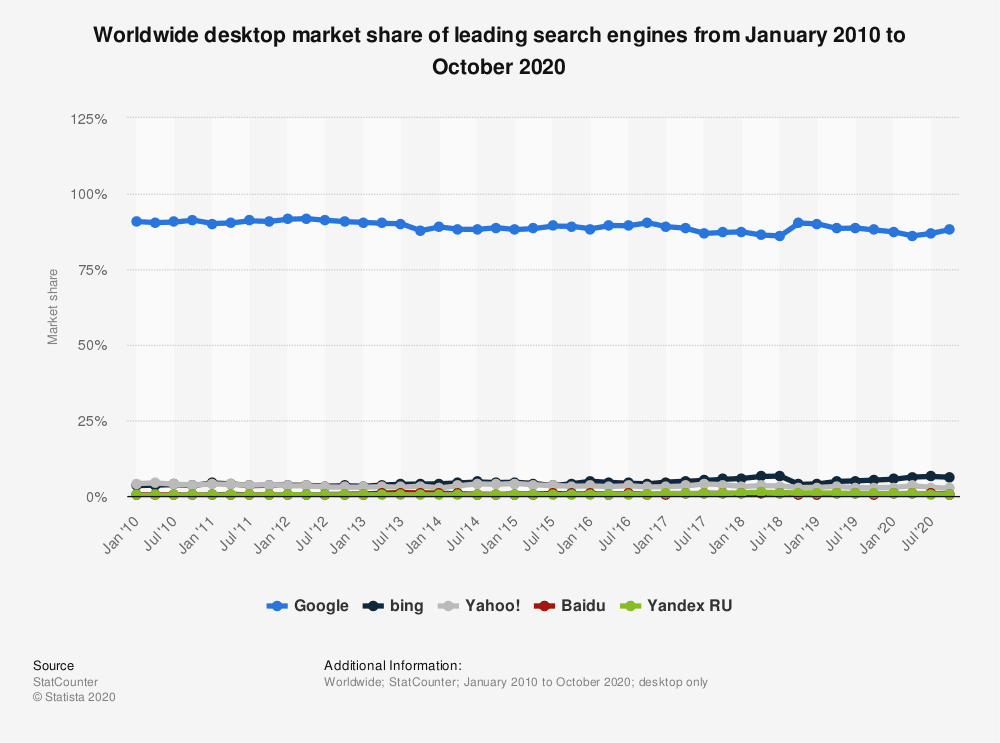Marketing is an important part of attracting and retaining leads for any commercial business. As more and more business owners are turning to the internet to search for the services they need, it becomes increasingly important that organizations across industries maintain functional, optimized online presences. Commercial companies can use digital marketing tools to foster ongoing relationships with their clients and drive quality traffic to their websites in order to stay competitive and continue to build their businesses.
Plan around your industry’s seasonal peaks
Every industry experiences seasonal shifts and peaks throughout the year. Depending on the type of commercial business you operate, you may see an increase in demand during colder weather or warmer weather months. For example, a company that provides commercial furnace maintenance services would likely see a surge in businesses during the fall and winter months.
Identifying the seasonal trends that affect your business is the first step in adjusting your marketing efforts around seasonality in order to channel your efforts most effectively. For example, you might use Google Ads to view useful analytics regarding your most active sales months.
Create useful, informative content
Producing relevant content such as blog posts, articles, and videos can help attract qualified leads. Google promotes websites that exemplify expertise, authoritativeness, and trustworthiness (E-A-T) above those that do not. Making sure your content is fact-based (backed by links to high authority sites), relevant, and informative is a great way to improve your search engine rankings, which will ultimately help attract new business.
Keep an up-to-date blog
A great way to provide useful content to your audience and simultaneously improve your search engine results page (SERP) rankings is by maintaining a blog. Blogging about topics that are relevant to your ideal client can drive quality traffic to your website and has a high rate of conversion. The following are tips for writing effective business-to-business (B2B) blog posts:
- Write about relevant, modern topics
- Introduce thought leadership relevant to your industry
- Research and use keywords
- Use high-quality images
- Avoid jargon and make the text simple
When creating content, consider different stages of the sales funnel. Top-of-funnel content may be focused on educating potential customers, and bottom-of-funnel may be focused on converting leads into customers.
A digital marketing agency can help you develop a blog that meets Google’s quality evaluator guidelines.
Search Engine Marketing (SEM)
Personalizing your ad copy can help your business stand out from the rest, especially when it comes to search engine ads. Most ads look pretty similar, especially for companies advertising similar services, so this is an important opportunity to stand out. Adapt the keywords and text you use in your landing pages and ads in order to stay relevant and modern.
You may also consider using solely commercial-intent keywords around your seasonal peaks, including ones that are more commonly used around certain holidays. Commercial-intent keywords are only relevant to transactional searches, which are searches performed with the intention of buying something. Examples of commercial-intent keywords include:
- Buy
- Best
- Top
Geofencing
The technology of geofencing allows marketers to create virtual boundaries and target the best, most specific audience for a business. As a commercial business owner, you can use geofencing technology to reach other patrons based on clearly defined locations where the potential customer may be. It can also be used at event such as trade shows and conferences that are relevant to your target market. Potential clients can receive ads and information about your services directly to their smartphones through the use of integrated GPS receivers and location-based tracking.
Voice search
By 2023, it is expected that there will be about 8 billion voice assistants in use worldwide. Some of the most used voice assistants and smart speakers include:
- Amazon’s Alexa
- Google Assistant
- Microsoft’s Cortana
- Apple’s Siri
Since voice search is only becoming more common, consumers are using their smart speakers to look for the services they need. However, this creates a new need for optimization, as they way people conduct searches verbally differs from the way they type things into Google. There are three major characteristics common to voice searches:
- Voice queries tend to contain conversational words and are longer
- Voice queries are often for local content
- Searchers are looking for instant, fast results
When conducting a voice search, a user wants a short, specific answer that easily provides them with all of the information they need. They will often phrase their query as a question, as they would do in regular conversation. People who are looking for other organizations with whom to do business will generally be looking locally, so it is especially important for commercial company owners to optimize their content for voice. This evolution of the way people are using the internet to find businesses must be considered in an up-to-date digital marketing campaign.
Google My Business
Google is, undoubtedly, the leading desktop search engine worldwide, as evidenced by the chart above. Google also accounts for 93.96% of all mobile searches in the United States and is the most popular mobile app publisher based on downloads. Accordingly, it is important that your business is listed with Google My Business. It’s a free tool that anyone can use to manage their online presence across Google, including Search and Maps. You can use it to verify your business, adding credibility to your listing, and to provide clients with accurate, up-to-date information.
Humanize your brand
For any company, it’s important to add a human element to your brand. Even B2B organizations need to establish a personality for themselves in order to encourage lasting client relationships. You can do this by keeping your website updated, communicating promptly and directly with customers, and using your actual name when doing so. Network building is facilitated by professional communication and can encourage referrals and lead generation.
While social media in general is a useful tool for business to consumer (B2C) companies, LinkedIn is arguably the most important for business to business (B2B). In fact, up to 80% of B2B leads originate on LinkedIn. There are four major benefits of establishing a LinkedIn profile:
- Lead generation – LinkedIn offers personalized means of identifying and engaging with potential clients. It offers a platform for professional communication and enables businesses to network extensively.
- Industry research – LinkedIn is a great tool for seeking out feedback and opinions and to answer and ask questions. You can connect with similar companies and stay up-to-date on industry trends and information.
- Thought leadership – Producing high-quality content and promoting it via LinkedIn is a great way to establish authority and reach potential partners.
- Reputation improvement – Using LinkedIn is a great way to connect with other businesses and build a strong network that can lead to long-lasting customer relationships. LinkedIn offers community group features that increase brand visibility and credibility.
Company history and information
Providing information about the people behind your business is more than professional; it is essential. One of the characteristics of a website that meets Google’s aforementioned quality standards is transparency. Websites should provide plenty of information about the owners and employees. Contact and biographical information, photos, and company history should be included on your website in an accessible, neatly formatted way.
Establish an email/newsletter list
94% of internet users have at least one email account. Therefore, sending your marketing materials to customers who have opted into your email list is a great way to place your content where they are going to see it. There are many benefits to incorporating email into your marketing strategy for your B2B marketing strategy. Email marketing allows businesses to tailor their advertising materials directly to the businesses they are trying to attract. B2B email copy should include the following:
- A concise subject line that builds curiosity
- A single, clear call to action
- Content that is information and results-based
Contact us
To get started developing a digital marketing strategy for your commercial business, contact Dragonfly Digital Marketing today or download our 9 Things to Do Before Hiring a Digital Marketing Agency.


